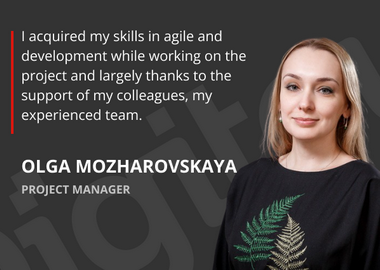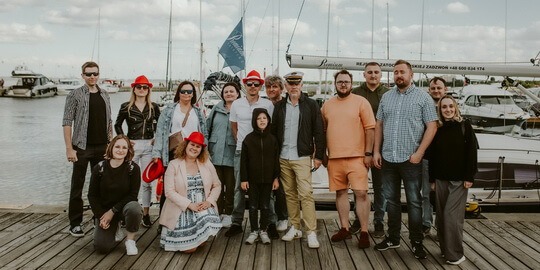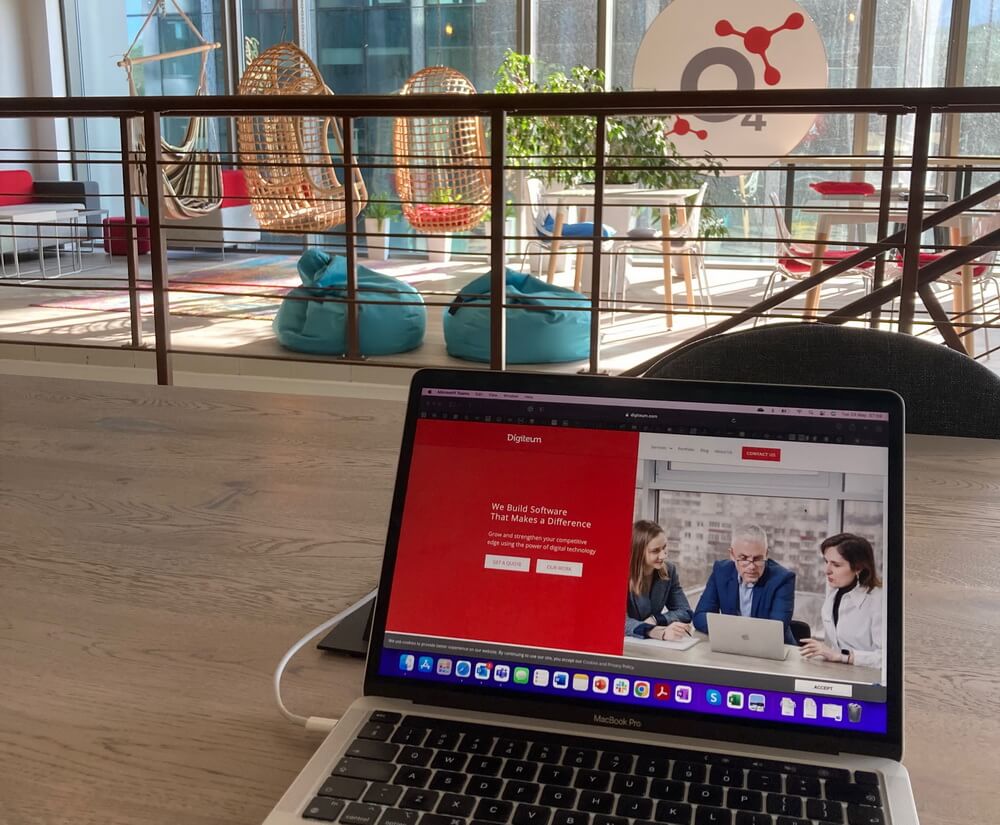Paving the Way to a Unique Career Journey in IT, One Language at a Time
You might be thinking C/C++, Java, JavaScript, Python, Go… Been there, seen that, done that.
But no!
This career story involves a rare eclectic mix of ancient Persian and Sanskrit, versatile Python, and the most complex of all — the language of effective communication that weaves talents together and transforms ambitious ideas into successful digital projects.
This is a glimpse into the journey of Olga Mozharovskaya. The one and only Project Manager with a unique blend of rich linguistics knowledge, fluent Python, and agile project management skills.
Olga leads a long-standing team working with Oxford Languages, Oxford University Press — driving innovation in language and lexical data for over 150 years. Together with her team, she works on several meaningful initiatives, facilitating language data conversion and empowering the Oxford Global Languages programme.
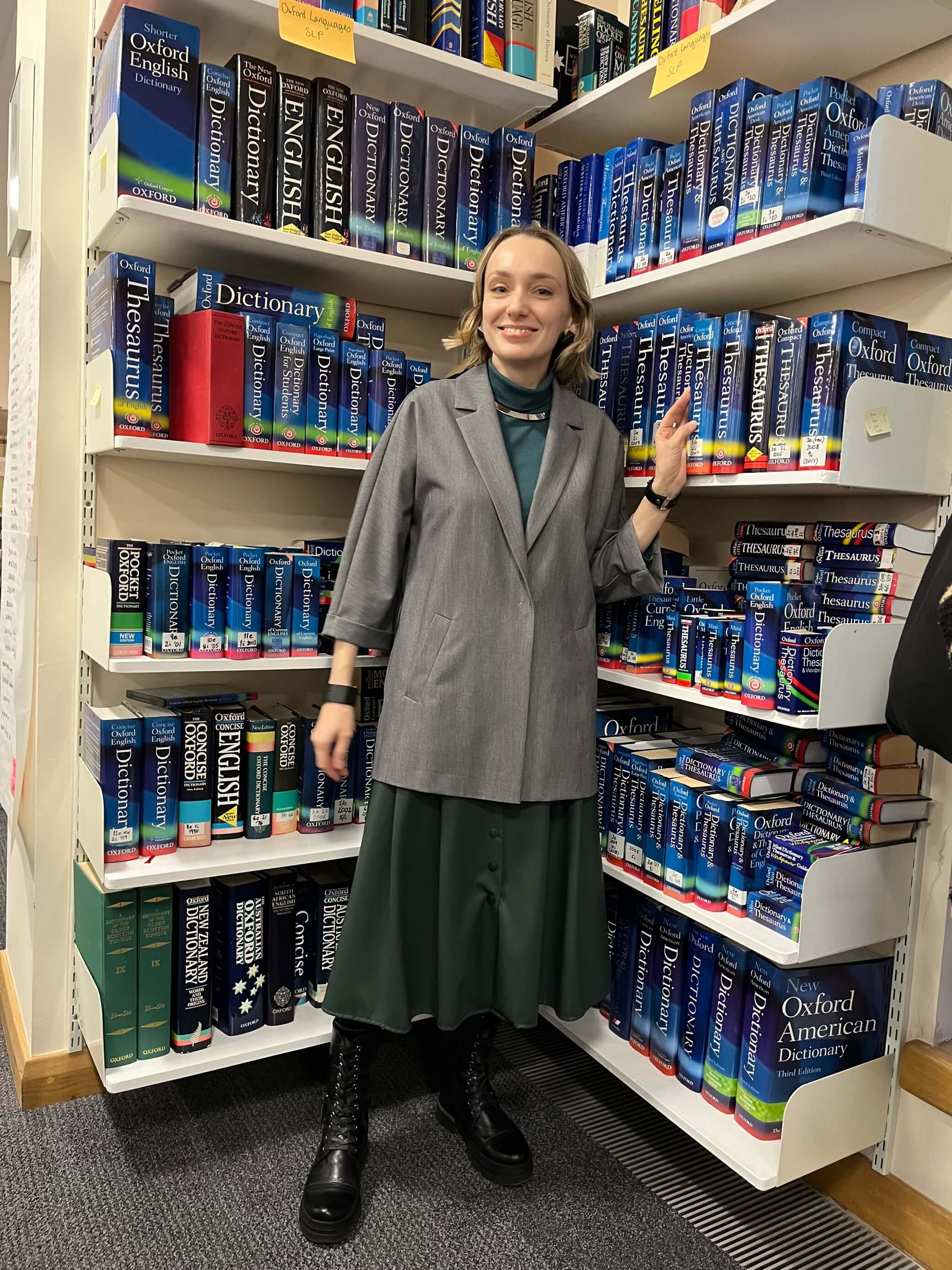
Olya, you began your career at Digiteum 10 years ago. What was your first role, and how did it transform over time?
I’ll start with how I came to work at the company. The thing is, the project needed someone who could read in Urdu. I would say that by a happy coincidence, the project and I found each other. So, at the very beginning, I played the role of a linguistic consultant, but my responsibilities quickly began to expand.
I started doing manual testing with the support of my colleagues and the team’s management, writing simple scripts for daily QA and analysis tasks, and generally delving into computational linguistics. This is a vast and extraordinarily interesting field of knowledge for me, and I would say that I am involved in a small part of it.
Then it happened that I moved to the role of the Project Manager. However, I still handle my old tasks related to linguistic analysis when necessary. And I really enjoy wearing that hat.
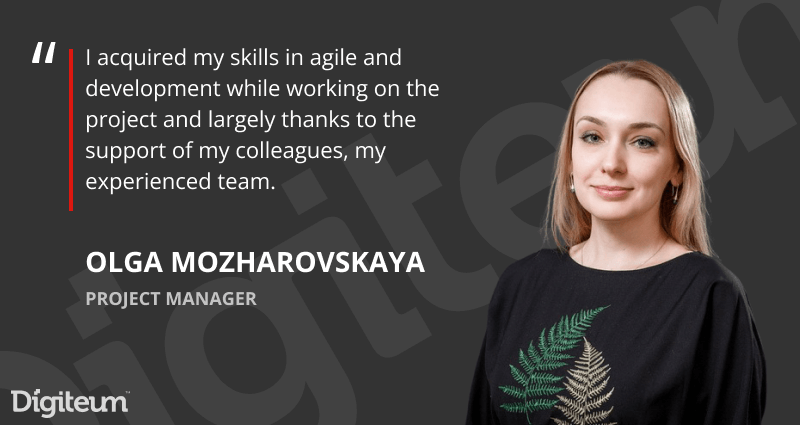
You combine a rare set of tech, people, and language skills. What helps you acquire them? And does working with OUP contribute to that?
Here it’s quite simple: I was incredibly lucky with both my teachers in the academic field and my colleagues at work. For example, I learned Sanskrit “illegally,” in a sense, simply because my university teacher agreed to teach me in his free time, even though it was not part of the regular curriculum.
When I took on the responsibilities of a Project Manager, I had been working on the project long enough to understand the specifics of its processes. But my skill set in management was far from complete. It was actually a new area of knowledge for me.
Here, the management at Digiteum helped me immensely, providing support from training to resolving daily issues. So, of course, I acquired my skills in agile and development while working on the project and largely thanks to the support of my colleagues, my experienced team.
As for linguistic skills in my work, as I mentioned, I am glad I get to use and expand them. For example, sometimes it is necessary to get a superficial understanding of the morphological features of a new language, which can turn into a small private investigation. But for a linguist, this is rather routine work.
You work with a legendary institution in the heart of Oxford. Does it put extra pressure? Or is it a privilege?
Undoubtedly, I am happy to work with Oxford and observe the life of publications I have known about or used since childhood. My impression of Oxford in person could probably be a separate lyrical story, from the architecture and general academic atmosphere to the friendliness of the pubs and the special quiet charm of the fields and the cows in them.
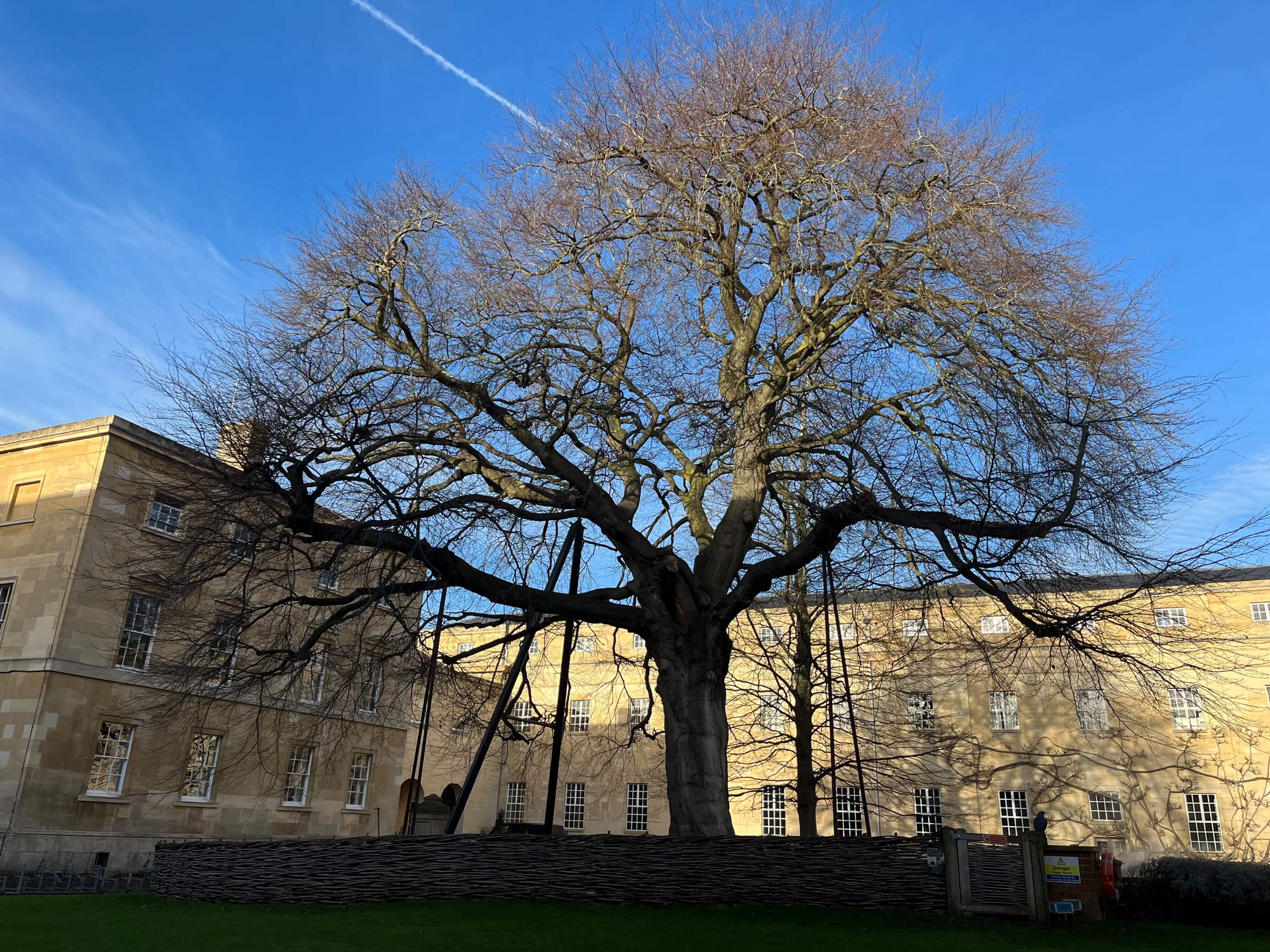
Despite this awareness of a connection with tradition, I think the responsibility for solving tasks lies primarily in professional responsibility for getting the job done. What I am truly proud of is working with my Oxford colleagues, remarkable professionals in their field.
What qualities and skills lay the foundation for a long and prosperous career at an IT company?
It will come as no surprise if I say that it is a willingness not only to learn but also to relearn.
I can share an old story.
In the preface to the ancient Indian grammatical treatise Mahabhashya, it is told how the god Indra studied the science of words. He learned from a complete list of all possible Sanskrit words and word forms. His teacher was the preceptor of gods, and he had a thousand divine years (which is obviously a very long time), but even in that time, he did not reach the end of the list.
Clearly, such a method of learning would not be effective for a mere mortal, if even Indra himself did not succeed with it in a thousand divine years.
So, what method might be effective? — the treatise asks. It is the method of finding patterns, formulating rules, and identifying exceptions.
In other words, I think it’s important to be able to see ways to shorten the path in solving problems.
Olga’s journey is yet another proof that IT today is a boundless space full of opportunities for different talents, skills, and vocations. In some way, it mirrors an inspiring career advice that Digiteum First Lady and co-founder, Katherine Lazarevich, shared in her interview not long ago: “Find the right place and the right fit for your talent, instead of blindly following trends or high paychecks. Once you find it, you will flourish in your career and your life.”
Perhaps, it could inspire you too.


